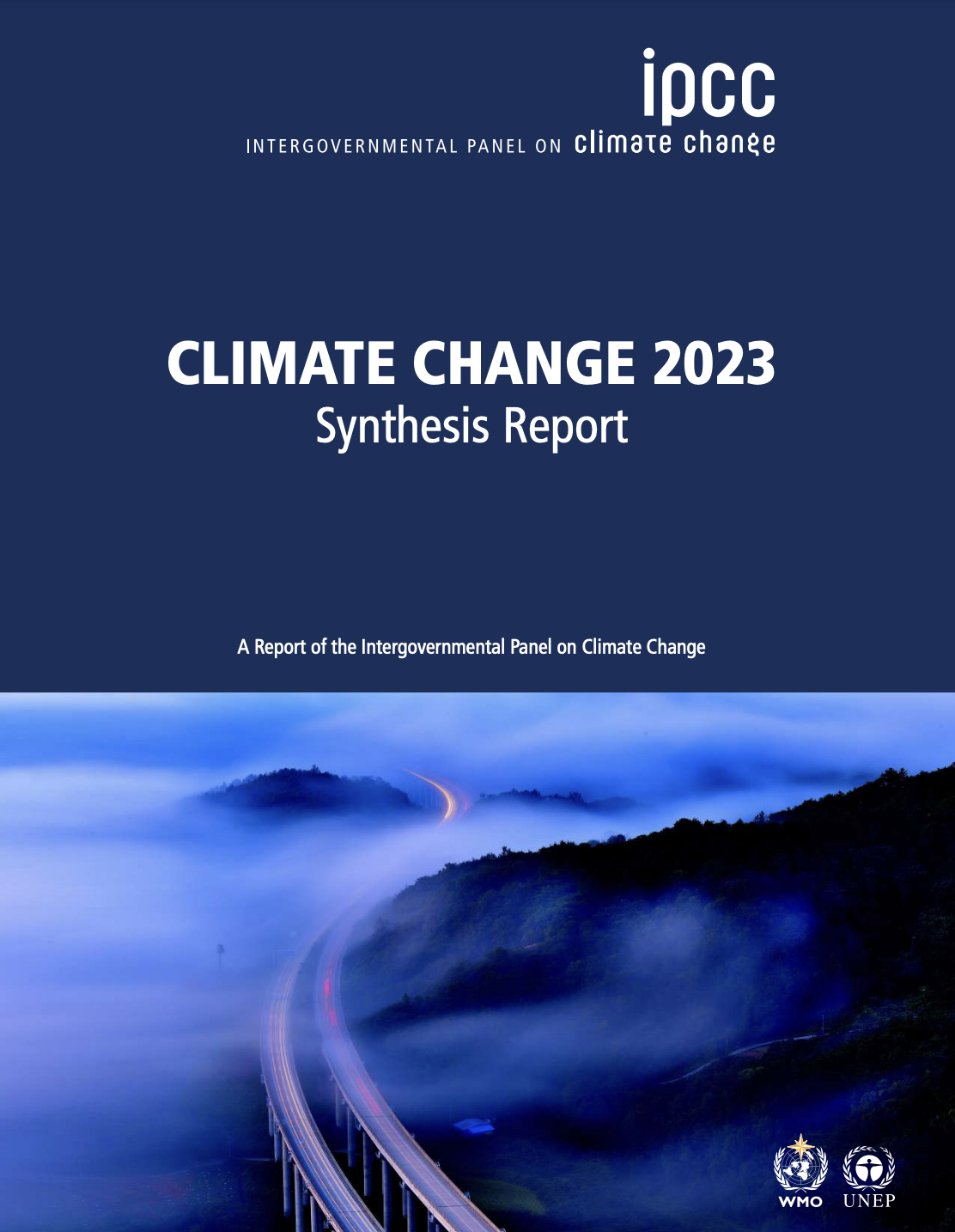IPCC Sixth Assessment Synthesis Report: Climate Change 2023

Posted by
CAKE TeamPublished
Abstract
This Synthesis Report (SYR) constitutes the final product of the Sixth Assessment Report (AR6) of the Intergovernmental Panel on Climate Change (IPCC). It summarizes the state of knowledge of climate change, its widespread impacts and risks, and climate change mitigation and adaptation, based on the peer-reviewed scientific, technical, and socio-economic literature since the publication of the IPCC’s Fifth Assessment Report (AR5) in 2014.
This SYR distills, synthesizes, and integrates the key findings of the three Working Group contributions – Climate Change 2021: The Physical Science Basis; Climate Change 2022: Impacts, Adaptation and Vulnerability; and Climate Change 2022: Mitigation of Climate Change. The SYR also draws on the findings of three Special Reports completed as part of the Sixth Assessment – Global Warming of 1.5°C (2018): an IPCC Special Report on the impacts of global warming of 1.5°C above pre-industrial levels and related global greenhouse gas emission pathways, in the context of strengthening the global response to the threat of climate change, sustainable development, and efforts to eradicate poverty (SR1.5); Climate Change and Land (2019): an IPCC Special Report on climate change, desertification, land degradation, sustainable land management, food security, and greenhouse gas fluxes in terrestrial ecosystems (SRCCL); and The Ocean and Cryosphere in a Changing Climate (2019) (SROCC). The SYR, therefore, is a comprehensive, timely compilation of assessments of the most recent scientific, technical, and socio-economic literature dealing with climate change.
The SYR is a self-contained synthesis of the most policy-relevant material drawn from the scientific, technical, and socio-economic literature assessed during the Sixth Assessment. This report integrates the main findings of the AR6 Working Group reports and the three AR6 Special Reports. It recognizes the interdependence of climate, ecosystems and biodiversity, and human societies; the value of diverse forms of knowledge; and the close linkages between climate adaptation, mitigation, ecosystem health, human well-being, and sustainable development. Building on multiple analytical frameworks, including those from the physical and social sciences, this report identifies opportunities for transformative action which are effective, feasible, just and equitable systems transitions, and climate resilient development pathways. Different regional classification schemes are used for physical, social and economic aspects, reflecting the underlying literature.
The Synthesis Report emphasizes near-term risks and options for addressing them to give policymakers a sense of the urgency required to address global climate change. The report also provides important insights about how climate risks interact with not only one another but non-climate-related risks. It describes the interaction between mitigation and adaptation and how this combination can better confront the climate challenge as well as produce valuable co-benefits. It highlights the strong connection between equity and climate action and why more equitable solutions are vital to addressing climate change. It also emphasizes how growing urbanization provides an opportunity for ambitious climate action to advance climate resilient development and sustainable development for all. And it underscores how restoring and protecting land and ocean ecosystems can bring multiple benefits to biodiversity and other societal goals, just as a failure to do so presents a major risk to ensuring a healthy planet.
Citation
IPCC, 2023: Climate Change 2023: Synthesis Report. Contribution of Working Groups I, II and III to the Sixth Assessment Report of the Intergovernmental Panel on Climate Change [Core Writing Team, H. Lee and J. Romero (eds.)]. IPCC, Geneva, Switzerland, 184 pp., doi: 10.59327/IPCC/AR6-9789291691647.


